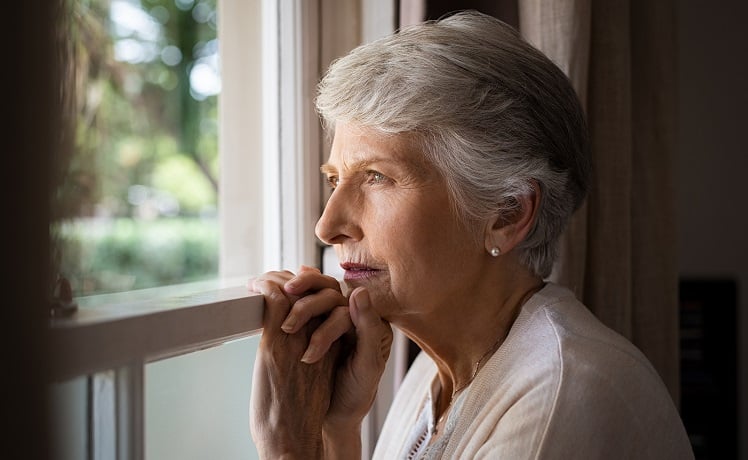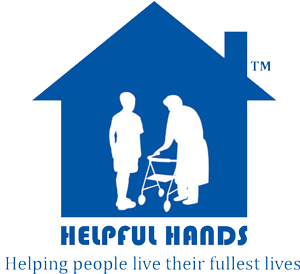By Michael Watson

If you have a loved one with Alzheimer’s or some other form of dementia, then you are already dealing with many unique challenges. One of those challenges is the phenomenon of “sundowning.” It sounds rather scary, but it is simply a symptom of dementia that many seniors experience, especially as their condition worsens. It affects both those who are institutionalized and those being cared for at home. In this post, we will review sundowning and provide some tips to helping your loved one.
What Is Sundowning?
Sundowning, or sundown syndrome, is when your loved one’s symptoms get worse later in the day. It starts in the late afternoon and goes into the night. It is experienced by 1 out of 5 people with Alzheimer’s, but can also show up in older people who don’t show other symptoms of dementia.
The symptoms of sundowning include:
- Irritability and agitation
- Restlessness
- Confusion or disorientation
- Increased suspicion
- Making irrational demands
- Mood swings
- Yelling, pacing and other aggressive behavior, including screaming, moaning, etc.
- Hallucinations
Sundowning is not a formal diagnosis, but rather a description of a phenomenon.
What Causes Sundowning?
Experts aren’t sure yet why sundowning happens, but it appears to be connected to the brain no longer signaling whether the senior is awake or asleep properly. It’s often associated with other sleep problems, including insomnia, and can also be connected to depression, pain, or boredom. Fatigue, whether caused by insomnia or overly tiring activities, seems to be a major cause. In fact, sundowning can resemble the grouchy antics of an overtired toddler who is up past their bedtime.
Sundown syndrome is more common in seniors who are institutionalized and may thus have something to do with the sense of loss of control that can come from being in a home. Some studies indicate it may be associated with the time of shift change to some degree. There is no data on whether it affects particular demographics. However, it does tend to be more common in seniors with chronic pain, psychiatric conditions, or who are on a lot of medication.
As it is associated with fading light, sundowning symptoms can be worse in the fall and winter months, especially if the cold weather forces seniors to stay inside.
How Can You Help?
If your loved one is showing signs of sundown syndrome, there are a few things you can do:
- Maintain a regular schedule of sleeping and eating. Try not to let them nap too much during the day as it can cause sleeplessness at night.
- Make sure that they are getting what they need to sleep. Some seniors can no longer sleep flat out and may be better off sleeping in a recliner rather than a bed. Others might need more or fewer pillows than was once the case. Make sure their bedroom is free of noise. For some people, a white noise generator might help.
- Don’t give them caffeine or sugar in the late afternoon or evening. Don’t give them alcohol at all, even if their medication regime allows it. Alcohol affects restful sleep and can worsen symptoms.
- Avoid setting up situations that cause more shadows in the afternoon. Some seniors benefit from a night light. Others may need light therapy. A full spectrum fluorescent light in the mornings can be helpful, as can a morning walk if they are up to it and the weather allows. If they are showing symptoms, turning up the lights can help.
- Discourage watching TV shows very late at night, or watching shows that cause upset. As dementia progresses, your loved one may no longer be able to follow a TV show or read a book, and may do better with music or simple relaxation videos. It can be extremely frustrating to realize you can no longer follow the plot of your favorite show and that on its own can cause symptoms.
- Encourage daytime activity. A daily walk can make a huge difference and can also be a good way to spend time with them. It will also help improve their physical health. If it’s too cold, hot, or rainy to go outside, make a bit of space, turn on some music, and dance for a bit. It can make a huge difference and is good for you too.
- Make sure they have familiar items around them, especially if they have recently moved into an assisted living facility or memory care. Bringing family photos can help. Pets can also be helpful, although they may need help properly caring for them.
- Talk to their doctor. In some cases, sundown syndrome is caused or aggravated by medications, and it may be possible to mitigate symptoms by changing medications, dosage, or the timing of medications. For example, it’s sometimes the case that problems start when a morning dose of a med starts to wear off, and changing the timing or splitting the dose can make a difference. (Do not, however, change your loved one’s medications without talking to their doctor first).
- Track their behavior. Everyone has different symptoms, and if you keep a diary of days on which sundowning symptoms are worse, you might be able to track specific triggers.
- Practice good self care for yourself. It’s very easy for caregivers to stop looking after themselves properly, eat junk food, skip exercise, etc. Doing so means you are no longer at 100% for your loved one and can and will have problems caring for them. Remember that there is no shame in getting extra help or respite care as needed.
Sundowning can contribute to caregiver fatigue. Learning to deal with dementia behaviors in general can help caregivers deal with sundown syndrome better. It’s particularly useful to look at techniques to help your loved one keep a regular sleep schedule.
It’s also worth remembering that none of these symptoms are your fault and while you can help your loved one deal with them, if they are aiming anger and irritation at you it is not really you are are angry with, but their disease. If you need more help supporting a loved one with Alzheimer’s or dementia, then refer to our Family Caregiver’s Guide to Alzheimer’s & Dementia.

